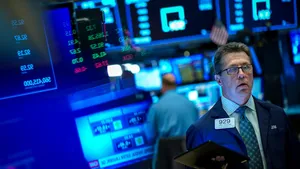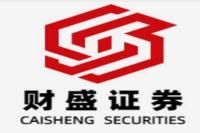EU Launches Anti-Dumping Probe on ABS Resins from Korea and Taiwan: A Deep Dive into the Implications
Meta Description: EU initiates anti-dumping investigation into Acrylonitrile-Butadiene-Styrene (ABS) resins from South Korea and Taiwan, impacting global plastics markets. Expert analysis on the implications for businesses and consumers. Keywords: ABS Resins, Anti-Dumping, EU Investigation, Korea, Taiwan, Acrylonitrile-Butadiene-Styrene, INEOS Styrolution, Versalis, Trinseo, Combined Nomenclature (CN), Trade Dispute, Global Plastics Market.
This isn't just another trade spat, folks. This is a seismic shift potentially rocking the global plastics industry. The European Union's recent launch of an anti-dumping investigation targeting acrylonitrile-butadiene-styrene (ABS) resins from South Korea and Taiwan is a big deal, and not just for the companies directly involved. We're talking about a material used in everything from car parts and appliances to toys and medical devices – a cornerstone of modern manufacturing. The implications ripple far beyond the factories of East Asia; they touch businesses, consumers, and the intricate web of global trade itself. This in-depth analysis will cut through the jargon, provide clarity on the situation, and offer a forward-looking perspective on what this means for the future. We'll explore the intricacies of the investigation, examine the potential consequences, and offer insights gleaned from years of experience navigating the complexities of international trade. Get ready to dive deep into the nitty-gritty – because understanding this situation is key to staying ahead of the curve in today's dynamic market. This isn't just about numbers and regulations; it's about the real-world impact on businesses, jobs, and the products we use every day. Prepare to be informed, and maybe even a little surprised, by the far-reaching consequences of this seemingly niche trade dispute. Let's unravel this together.
Acrylonitrile-Butadiene-Styrene (ABS) Resins: A Market Under Scrutiny
The European Commission's move to initiate an anti-dumping investigation into ABS resins imported from South Korea and Taiwan is a significant development. This isn’t a random target; ABS resins are a hugely important commodity, a versatile thermoplastic polymer boasting a unique blend of strength, rigidity, and impact resistance. Think about your everyday life – chances are, you’re surrounded by products incorporating ABS. From the casing of your smartphone to the body of your washing machine, ABS is everywhere!
This investigation, triggered by complaints from major European manufacturers INEOS Styrolution Switzerland SA, Versalis SpA, and Trinseo Europe GmbH, focuses on the period between October 1, 2023, and September 30, 2024, for dumping and from January 1, 2021, to the end of the dumping investigation period for injury assessment. The EU's Combined Nomenclature (CN) code 3903 30 00 specifically identifies the targeted ABS resins. The preliminary ruling is anticipated within seven to eight months. Wow, that's a tight schedule!
The key issue here is the alleged dumping – the practice of selling goods in a foreign market at a price lower than their domestic price or below the cost of production. The European producers claim that this undercutting is causing material harm to their businesses. This isn't just about protecting European companies; it’s about upholding fair trade practices within the EU market.
The Players Involved: A Who's Who of the Plastics Industry
The landscape of ABS resin production isn't a simple one. Key players exist across the globe, and this investigation highlights the intricate relationships and competitive dynamics within the industry. Let's take a look at some of the major players:
- INEOS Styrolution: A global leader in styrene monomer, polystyrene, and ABS production, this company is a major force in the European market. Their involvement underscores the seriousness of the alleged dumping.
- Versalis: A subsidiary of the Italian energy giant Eni, Versalis holds a significant share of the European plastics market. Their participation in the complaint further highlights the perceived threat.
- Trinseo: A prominent global materials science company, Trinseo is another noteworthy player in the European ABS resin market. This company's involvement adds weight to the claims made against Korean and Taiwanese producers.
- South Korean and Taiwanese Producers: While the specific companies haven't been publicly named yet, it's safe to assume several major players in these countries' thriving plastics industries are involved. This investigation puts a spotlight on their export practices.
This investigation isn't a simple case of "us versus them." It's a complex interplay of global competition, trade regulations, and the economic realities of a multi-billion-dollar industry.
Potential Impacts: A Ripple Effect Across Industries
The implications of this anti-dumping investigation extend far beyond the immediate players. If preliminary findings support the claims of dumping and injury, the EU could impose significant anti-dumping duties on ABS resins imported from South Korea and Taiwan. This could lead to several consequences:
- Price Increases: Higher import costs could translate directly into increased prices for ABS resins within the EU, affecting manufacturers across various sectors. This could lead to price hikes in consumer goods utilizing ABS.
- Supply Chain Disruptions: The investigation could lead to delays in the supply of ABS resins, impacting production schedules and potentially resulting in shortages for some manufacturers. Just-in-time manufacturing could be seriously challenged.
- Shift in Sourcing: EU manufacturers might explore alternative sourcing options, potentially increasing reliance on producers in other regions and altering global trade dynamics. This could influence geopolitical relationships.
- Retaliation: It’s possible that South Korea and Taiwan might retaliate with their own trade measures, creating a tit-for-tat scenario with potentially significant wider implications.
The situation isn’t just about economic impacts; it touches upon geopolitical considerations and the delicate balance of international trade relations.
Understanding the Anti-Dumping Process: A Step-by-Step Guide
The EU’s anti-dumping process is a complex legal procedure, designed to protect domestic industries from unfair competition. Let's break down the key steps involved:
- Complaint: The process begins with a formal complaint from domestic producers alleging dumping and injury.
- Preliminary Investigation: The European Commission conducts a preliminary investigation to determine if there's sufficient evidence to warrant a full-scale investigation.
- Full Investigation: If the preliminary investigation is positive, a full investigation is launched, involving detailed analysis of pricing, production costs, and the impact on the EU market.
- Provisional Measures: The EU may impose provisional anti-dumping duties during the investigation to prevent further alleged damage. This is a crucial point and can have immediate effects.
- Final Decision: After the full investigation, the Commission issues a final decision, which may involve the imposition of definitive anti-dumping duties or the termination of the case.
This process is rigorous, requiring substantial evidence and analysis. The timeline can be lengthy, and the outcome is uncertain until the final decision is made.
Frequently Asked Questions (FAQs)
Here are some common questions about the EU's anti-dumping investigation:
- Q: How long will this investigation take?
A: The preliminary ruling is expected within seven to eight months. The entire process, from complaint to final decision, could take much longer.
- Q: What are the potential consequences for consumers?
A: Higher import costs could lead to higher prices for products using ABS resins. This is a direct impact we’re all likely to feel.
-
Q: Will this impact the availability of products made with ABS?
A: Potential supply chain disruptions could lead to temporary shortages or delays in the availability of certain products containing ABS resins.
-
Q: What is the role of the European Commission in this investigation?
A: The European Commission is responsible for conducting the investigation, analyzing the evidence, and making the final decision on whether to impose anti-dumping duties.
-
Q: What can businesses do to prepare for potential changes?
A: Businesses should monitor the investigation closely, explore alternative sourcing options, and prepare for potential price increases and supply chain disruptions.
-
Q: Who will ultimately bear the cost of these duties?
A: Ultimately, the consumers will likely bear the brunt of any increased prices resulting from the imposed anti-dumping duties. This is a key economic reality.
Conclusion: Navigating the Uncertainties Ahead
The EU's anti-dumping investigation into ABS resins from South Korea and Taiwan is a complex situation with far-reaching implications. The outcome remains uncertain, but it highlights the critical importance of understanding the dynamics of global trade and the potential impact of trade disputes on businesses and consumers alike. Staying informed, adapting to potential changes, and being proactive in navigating these uncertainties will be crucial for companies and individuals alike in the coming months and years. The global plastics industry is bracing itself for what could be a significant restructuring. This investigation serves as a stark reminder of the interconnectedness of the global economy and the constant need for vigilance and adaptability in the face of evolving trade policies. Keep your eyes peeled – this is a story still unfolding.



